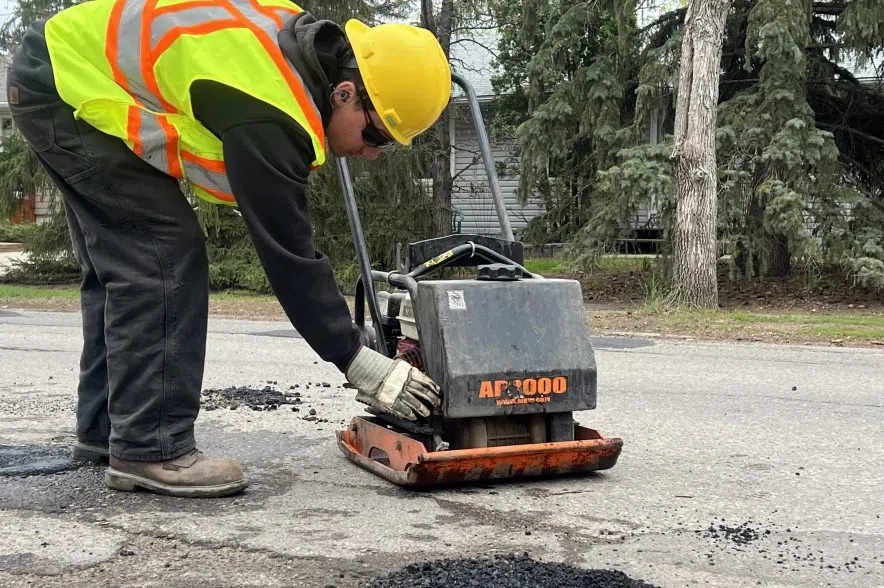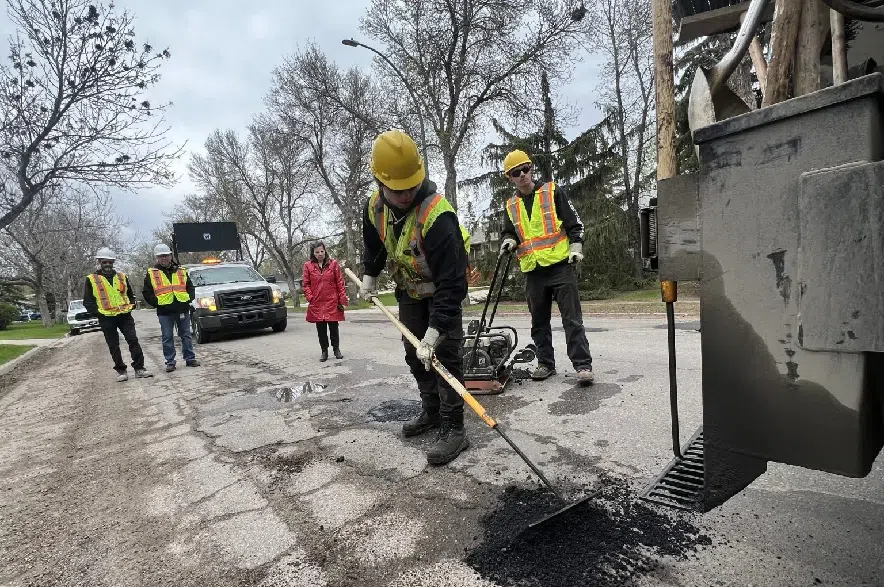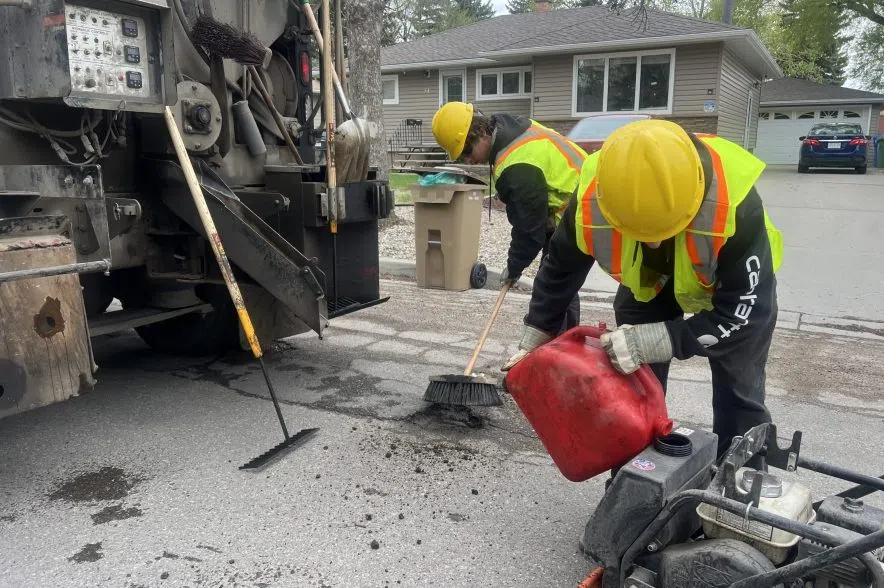While many people might prefer a milder winter, the freeze-and-thaw cycle often causes more potholes to crack open on the streets.
But despite the warmer temperatures seen across Saskatchewan this winter, Regina’s pothole patching crews are not seeing a big increase in their workload.
Mike Ede, Regina’s manager of roadway maintenance operations, said there have been around 150 service requests for potholes so far this year.
“This is actually a pretty common year so far,” Ede said. “We are getting the same amount of service requests that we get in this time of year.”
Ede said the number of requests has been trending down for several years.
“We typically see around 1,000 service requests throughout the entire summer,” he said. “That’s come down quiet substantially, even from five years ago we were doing 2,400 patches … We are seeing it decrease, which is great.”
Regina residents have previously expressed concerns about the long wait times before potholes are filled. After months of waiting, residents in the Normanview neighbourhood even decorated a local pothole for Christmas.

The City of Regina puts around $1 million dollars into filing potholes each year. (Abby Zieverink/980 CJME)
The patching season typically starts in May and runs until November, depending on the weather. Ede said different factors like weather or heavy traffic can temporarily prevent crews from patching.
The city has four different crews, he said, with three or four employees on each team.
Ede said the crews don’t keep a tally of how many potholes are patched each day because each hole varies in size and shape. Instead, he said the city measures patching progress by how much asphalt poured. Crews often pour between four to six tons of asphalt per day as they work to patch up the roads.
“It’s a bit of work,” Ede said.
“Unfortunately, in Regina you battle some tough ground to start with, and we put roads on top of them so sometimes that doesn’t often help our cause.”
The City of Regina budgets approximately $1 million for pothole repairs each year.
The crews operate on a priority system. The city takes in all the service requests from different inspections or resident reports, and a team of workers sorts them into a schedule.
“That has a lot to do with parts of the city and the severity of the potholes,” Ede explained.
“It’s kind of one of those situations that we would rather they report it,” he said. “We would rather have more reports of the same one knowing that people are concerned so that we can repair it.”
–with files from 980 CJME’s Abby Zieverink
-Editor’s Note: This story has been updated to correct an error regarding service requests.












